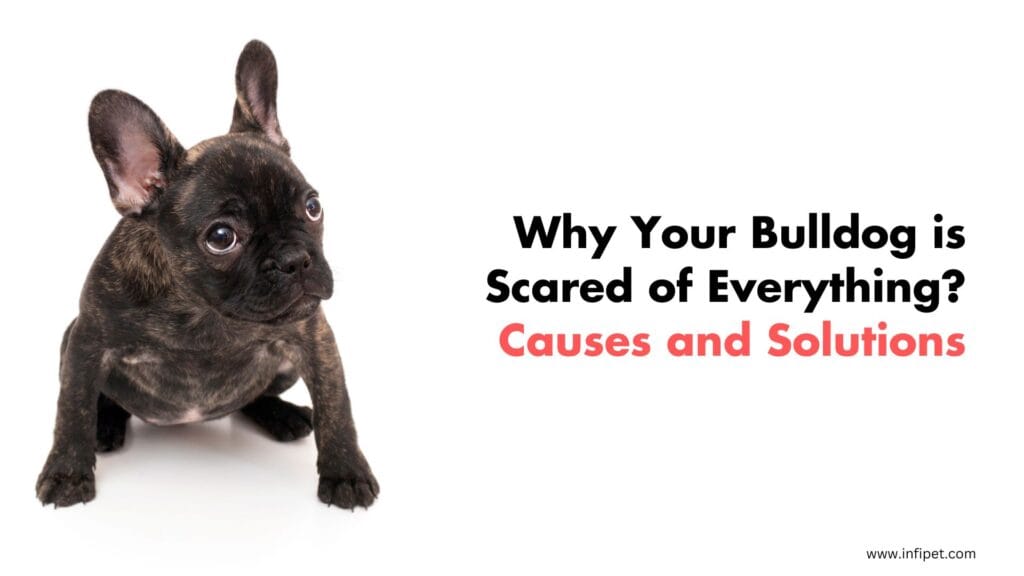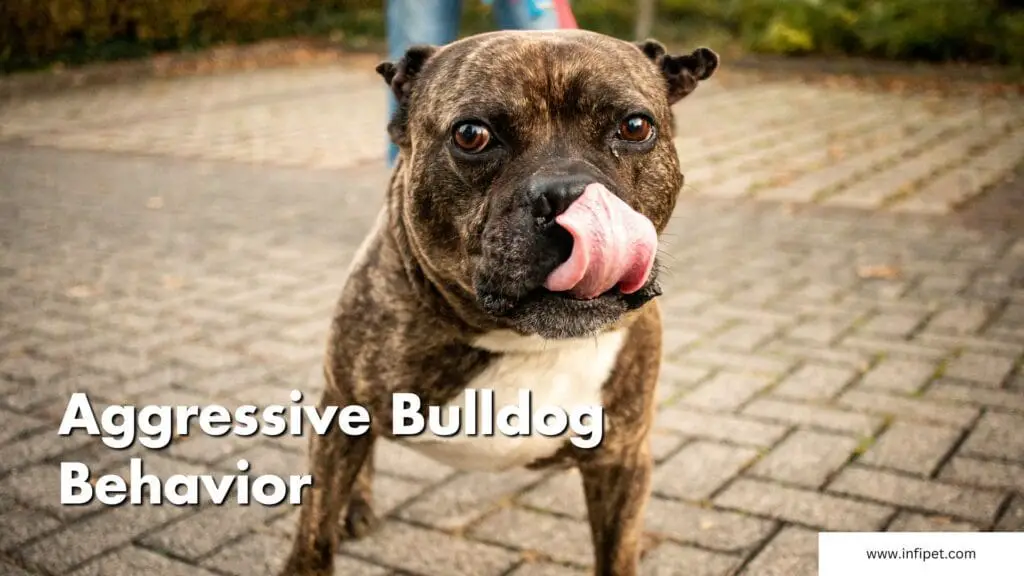Bulldogs are known for their tough exterior and loyal nature, but what happens when your fierce friend is scared of everything? Understanding the root causes of your bulldog’s fears and finding effective solutions can help your pet live a happier, more confident life. In this article, we’ll explore various reasons behind your bulldog’s anxiety and offer practical tips to help them overcome their fears.
Table of contents
- The Mysterious Case of the Scaredy-Bulldog
- Thunderstorms and Fireworks: The Ultimate Bulldog Nemesis
- Stranger Danger: Bulldogs and New Faces
- The Great Outdoors: Why Your Bulldog is Afraid of Walks
- Separation Anxiety: When Your Bulldog Can’t Even
- The Vet Visit: A Bulldog’s Worst Nightmare
- Home Alone: Dealing with Household Fears
- Conclusion
- Frequently Asked Questions
- Why is my bulldog scared of everything?
- How can I tell if my bulldog is fearful?
- What can I do to help my bulldog with loud noises like thunderstorms and fireworks?
- Why is my bulldog afraid of strangers?
- How can I help my bulldog overcome separation anxiety?
- When should I seek professional help for my bulldog’s fears?
The Mysterious Case of the Scaredy-Bulldog
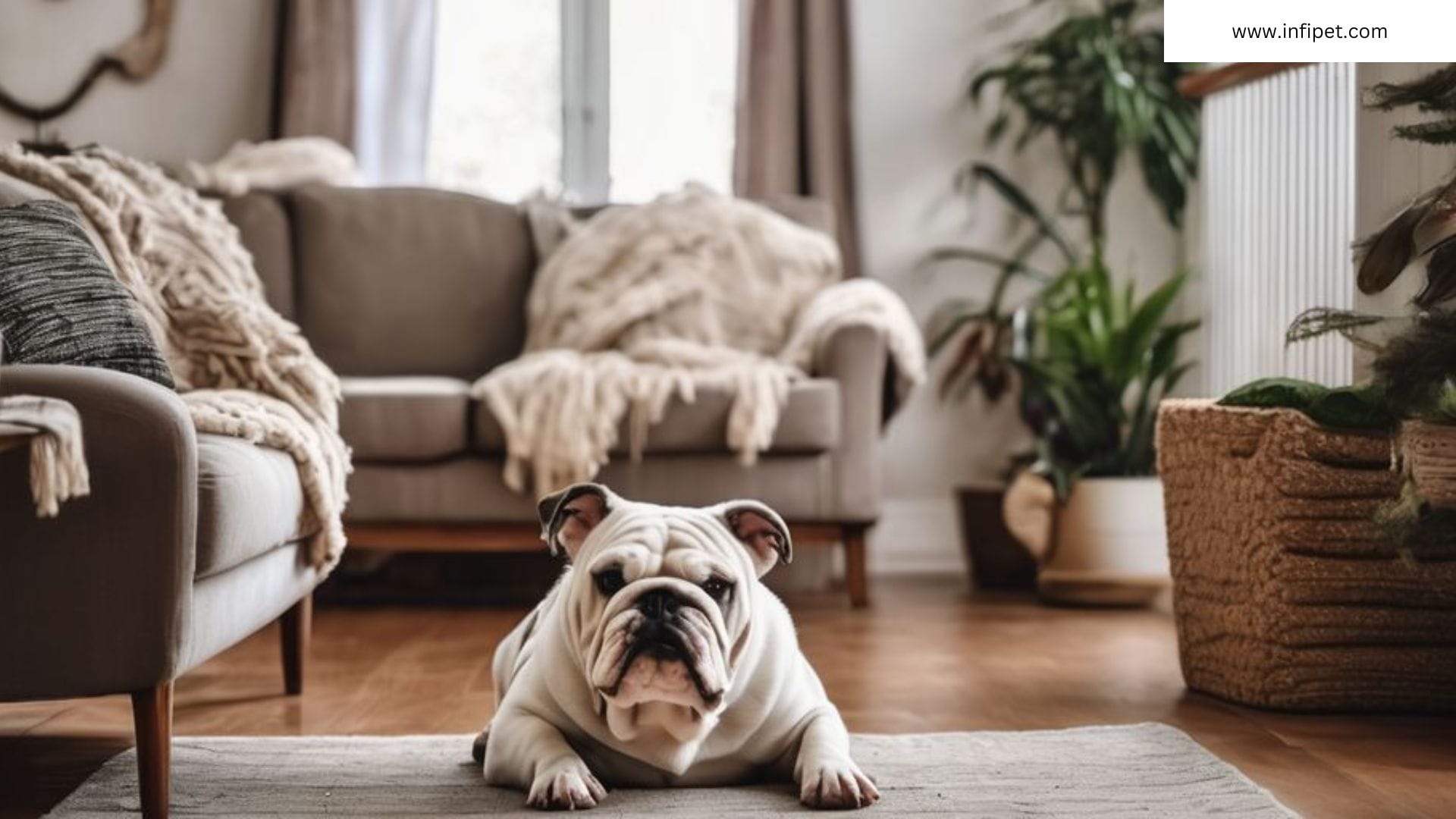
Ever wondered why your bulldog seems to be scared of everything? From the vacuum cleaner to the neighbor’s cat, it can feel like you’re living in a haunted house with a perpetually spooked furry friend. Let’s dive into the curious case of Maximus and the stinky breeze. Maximus the English Bulldog is on a mission to solve the mystery of his fears.
Is It All in the Genes?
Some bulldogs are just born with a more nervous disposition. Genetics can play a significant role in determining whether your bulldog will be a braveheart or a scaredy-cat. If Maximus’s parents were anxious, there’s a good chance he inherited some of that nervous energy.
Early Puppyhood Drama
Imagine being a tiny puppy and experiencing something traumatic. Whether it’s being separated from the litter too early or a scary encounter with a larger dog, these early experiences can leave a lasting impression. Maximus might still be haunted by the ghostly manor of his puppyhood.
The Role of Socialization
Socialization is crucial for any dog, especially bulldogs who can be naturally wary. Introducing Maximus to new people, places, and other animals in a controlled and positive way can help him build confidence. Practical strategies to help bulldogs conquer anxiety and fear triggers include gradual exposure and lots of positive reinforcement.
Thunderstorms and Fireworks: The Ultimate Bulldog Nemesis
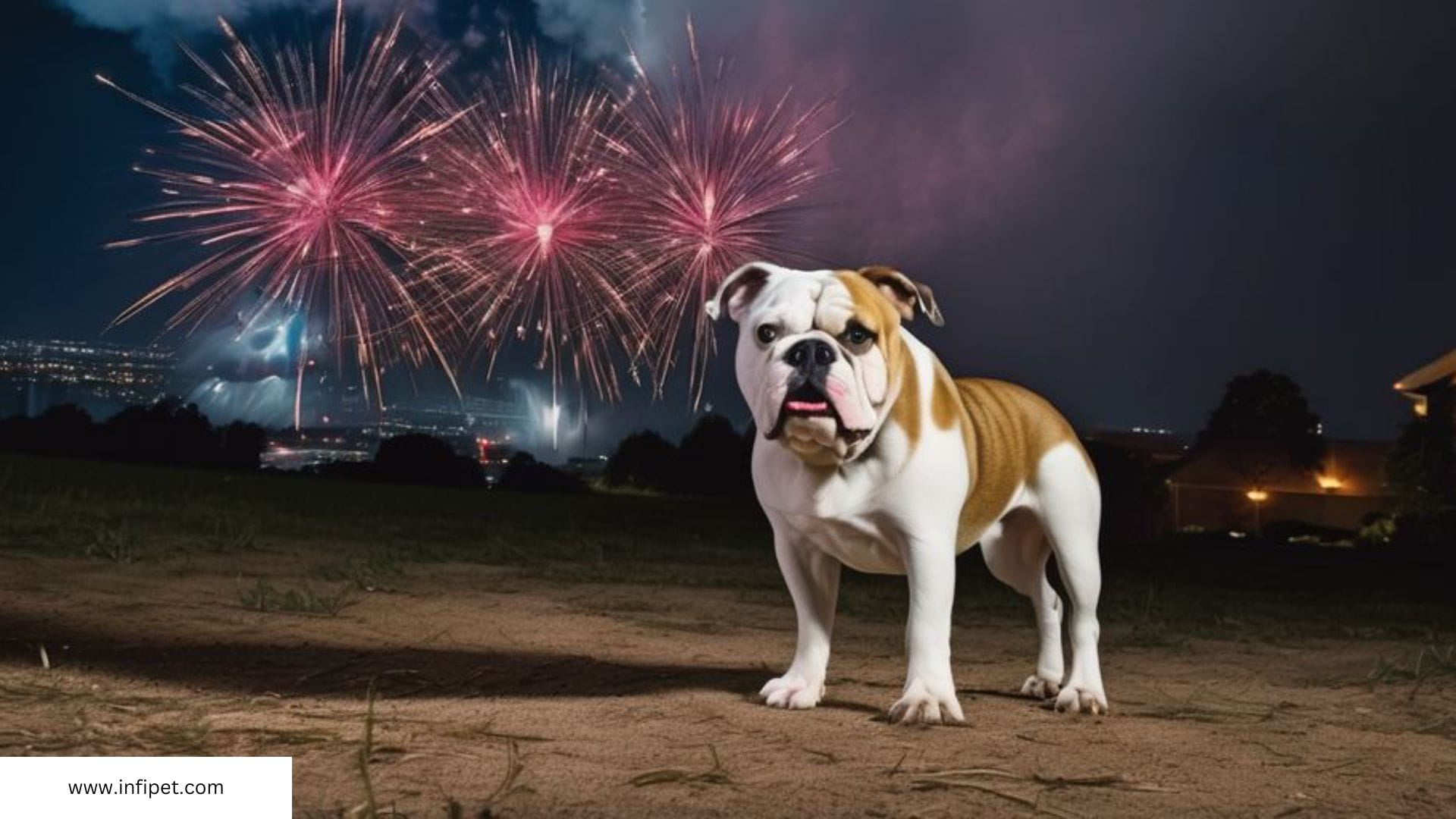
Imagine that your sweet dog is relaxing at your feet as you settle in to watch your favorite TV show. Just as the show starts getting good, a clap of thunder sounds. All of a sudden, your terrified dog starts to bark and run for cover. Has this ever happened to you? If so, you’ve probably wondered how you should handle the situation. Here’s an overview on how to help your scared dog overcome his fears.
Stranger Danger: Bulldogs and New Faces
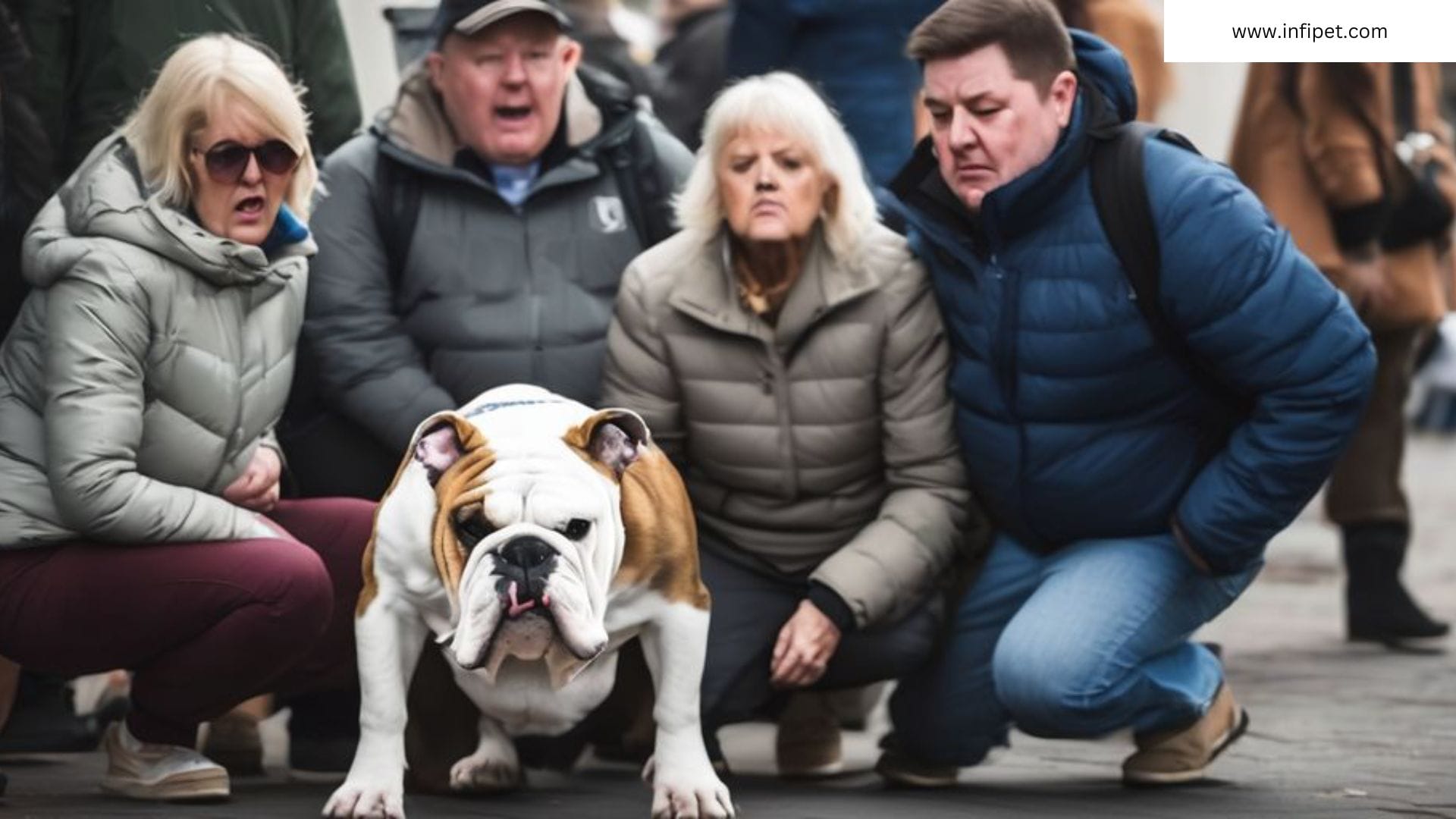
Why Your Bulldog Thinks Everyone is a Serial Killer
Ever wondered why your bulldog acts like every new person is a potential serial killer? It’s not just you. Bulldogs, like many dogs, can develop a fear of strangers due to a variety of reasons. Some dogs have had negative experiences, while others might just be genetically predisposed to be wary of new faces. Your dog’s anxiety can have a major impact on their quality of life and your relationship. Recognizing the signs of fear, such as cowering, trembling, or trying to hide, can help you address the issue more effectively.
Tips for Introducing New People
Introducing your bulldog to new people doesn’t have to be a nightmare. Here are some tips to make the process smoother:
- Take it slow: Allow your dog to approach the new person at their own pace.
- Use treats: Bring delicious treats to create a positive association.
- Short sessions: Keep interactions brief and provide frequent breaks.
- Observe body language: If your dog shows signs of fear, like refusing food or trying to escape, stop the interaction.
Socialization experiences are only beneficial if your dog is enjoying herself and is not overwhelmed.
The Power of Positive Reinforcement
Positive reinforcement can work wonders in helping your bulldog overcome their fear of strangers. Rewarding your dog for calm behavior around new people can gradually reduce their anxiety. Consistency is key here. Over time, your bulldog will start associating strangers with positive experiences, making them less likely to freak out. For more insights on bulldog care, behavior, and training, check out the American Bulldog archives page on Infipet.
The Great Outdoors: Why Your Bulldog is Afraid of Walks
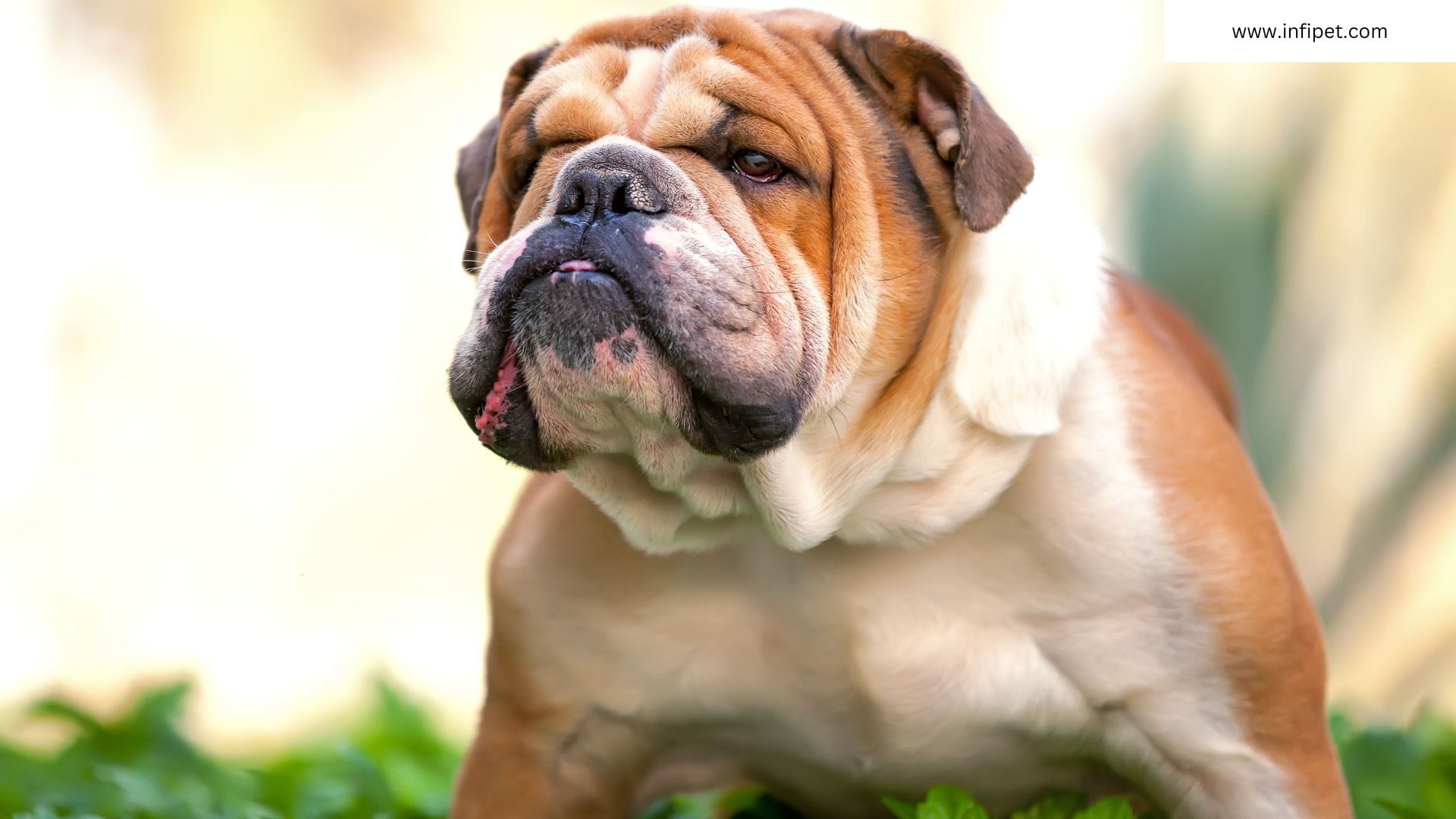
Common Outdoor Triggers
Ever wonder why your bulldog suddenly freezes like a statue during walks? It could be due to a variety of outdoor triggers. From loud noises to unfamiliar scents, the world outside can be a scary place for your furry friend. Some dogs who are scared of going on walks may not have pain, but their vision or hearing could have deteriorated, making them perceive things differently than before. So, next time your bulldog hesitates, remember it might just be their way of saying, “Hey, this is new and scary!”
How to Make Walks Less Terrifying
Protect your dog by immersing them in situations where they feel comfortable. If you see a person or dog who is likely to upset your dog, avoid them if possible. Arrange walks at off-peak hours and do not invite your dog to greet strangers. Give your dog a chance to have some calm outings, so you can praise them for being a good dog and they can start to relax. If your dog does appear frightened, try to retreat. If retreat is not possible, stand quietly until the danger has passed. It is fine to gently pet your dog but avoid excessive consoling. Do your best to remain calmly cheerful.
When to Seek Professional Help
If your bulldog’s fear of walks is becoming a significant issue, it might be time to seek professional help. A dog behaviorist can provide tailored advice and training techniques to help your dog overcome their fears. Remember, it’s okay to ask for help when you need it. Your bulldog’s well-being is worth it!
Separation Anxiety: When Your Bulldog Can’t Even
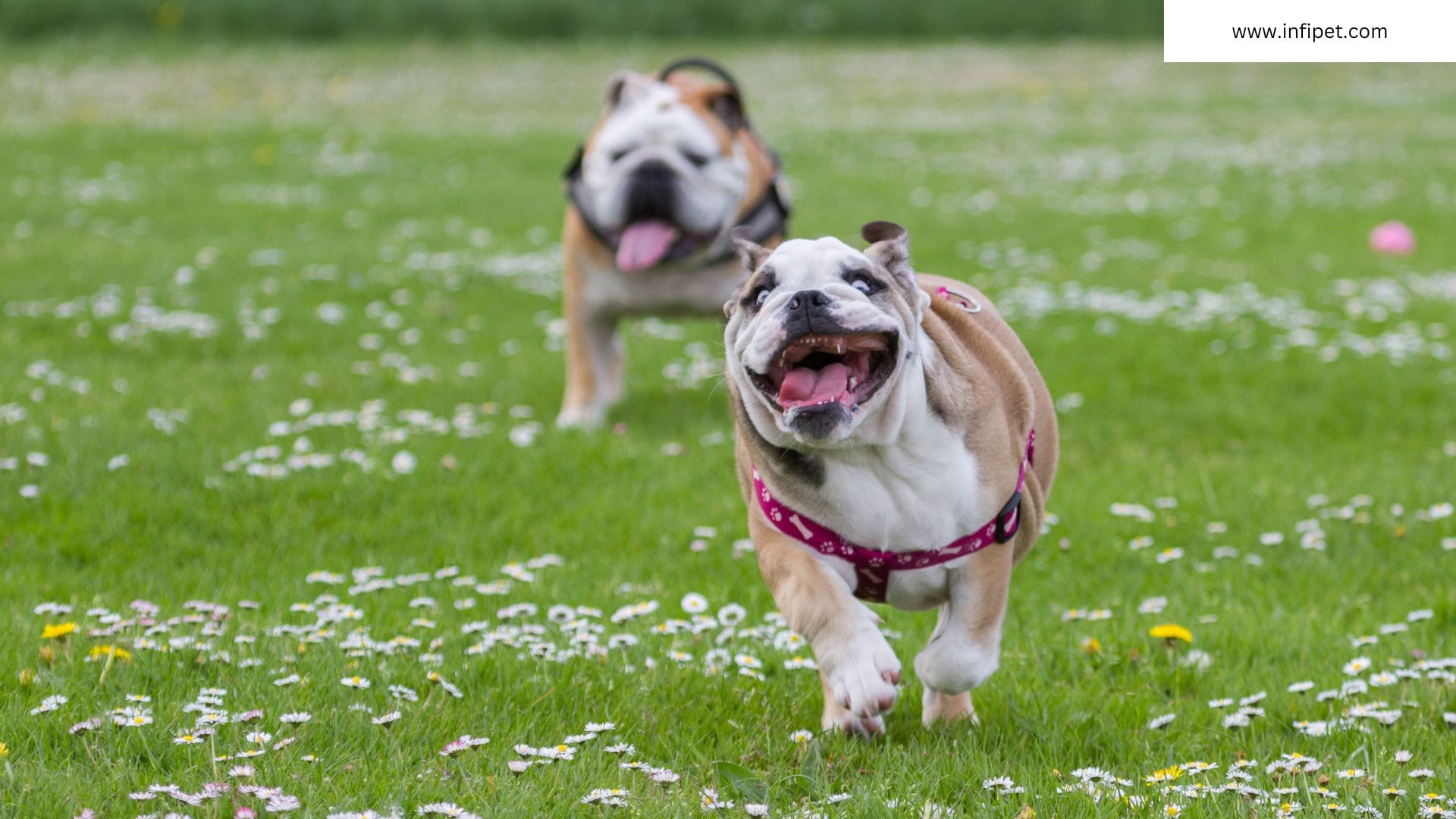
Separation anxiety is estimated to affect around 14 percent of dogs. Bulldogs with separation anxiety are unable to find comfort when they are left alone or separated from their family members. This anxiety often manifests itself in undesirable behaviors, such as urinating and defecating in the house, destroying furniture and furnishings, and barking.
Signs Your Bulldog Misses You Too Much
Keep an eye out for these signs: destructive behavior like chewing furniture, scratching doors, and digging are all ways dogs cope with stress. Other signs include excessive barking, whining, and even attempts to escape from the house.
How to Ease the Anxiety
- Create a Safe Space: Designate a cozy area with your bulldog’s favorite toys and a comfy bed.
- Consistent Routine: Stick to a regular schedule for feeding, walks, and playtime.
- Gradual Departures: Start with short absences and gradually increase the time you’re away.
- Interactive Toys: Keep them busy with puzzle toys or treat-dispensing gadgets.
Training Tips for Independence
- Positive Reinforcement: Reward your bulldog for calm behavior when you’re about to leave.
- Ignore Attention-Seeking: Don’t make a big fuss when you leave or return home.
- Professional Help: If the anxiety is severe, consult a vet or a professional dog trainer.
Remember, proper training and professional advice are key to preventing issues like separation anxiety. Your bulldog can learn to be more independent with the right approach.
The Vet Visit: A Bulldog’s Worst Nightmare
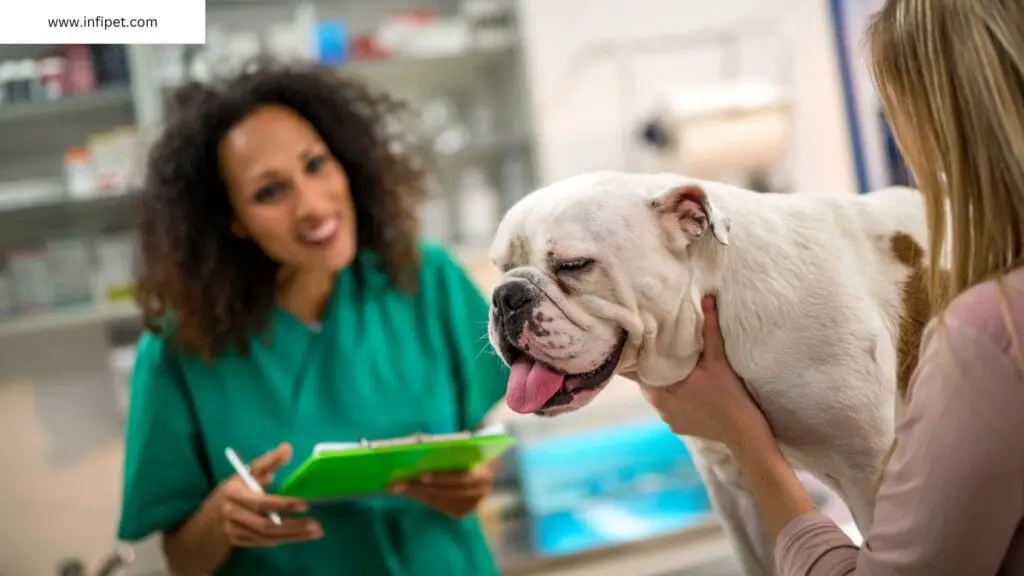
Why the Vet is So Scary
Taking your bulldog to the vet can feel like you’re dragging them to the gates of doom. The vet’s office is filled with strange smells, unfamiliar faces, and those dreaded metal tables. It’s no wonder your bulldog acts like it’s the end of the world. The vet explained that taking the breed anywhere, even, was a nightmare scenario.
Preparing for the Dreaded Visit
Preparation is key to making the vet visit less traumatic. Start by getting your bulldog used to car rides and the vet’s office environment. Bring along their favorite toy or blanket to provide some comfort. You might also want to schedule a meet-and-greet with the vet to help your bulldog get familiar with them. Remember, a little preparation can go a long way in reducing anxiety.
Making the Vet a Positive Experience
Turning the vet visit into a positive experience involves a mix of treats, praise, and patience. Reward your bulldog for calm behavior and try to keep the atmosphere as relaxed as possible. If your bulldog is particularly anxious, consult with your vet about possible calming techniques or medications. “I am so puzzled that anyone wants to own one,” they admitted.
“Fear-based responses can escalate quickly if dogs do not experience relief.” The first step is to schedule an appointment with your veterinarian so they can identify and treat any underlying medical conditions. Your veterinarian can also evaluate the level of your dog’s fear and then create a behavioral treatment plan or refer you to a board-certified veterinary behaviorist or certified applied animal behaviorist.
Home Alone: Dealing with Household Fears
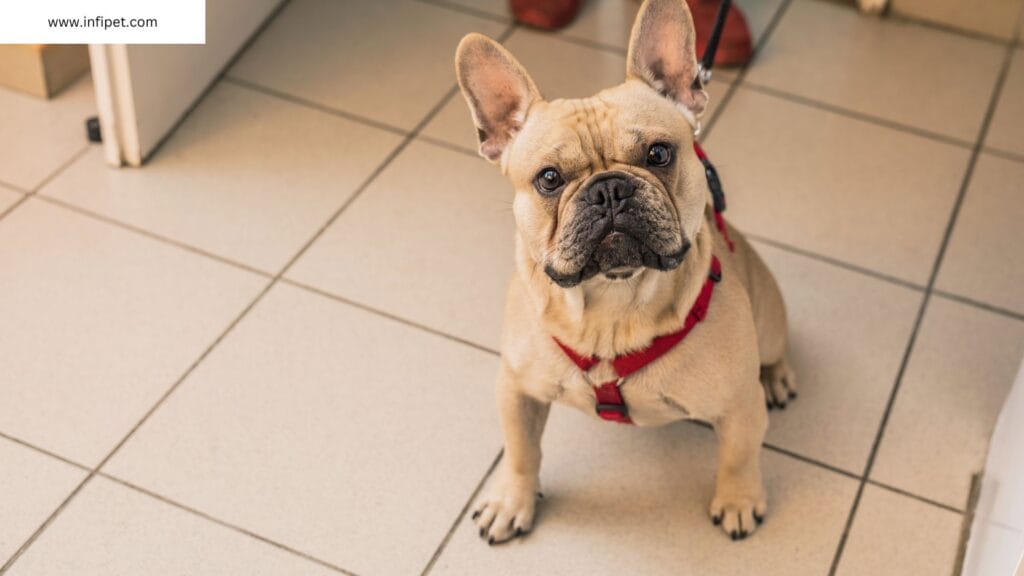
Common Household Scares
Living with a fearful dog can be stressful and frustrating. Treating phobias takes patience, time, and consistency. This can feel impossible, especially when excessive barking angers neighbors and landlords. Perhaps the most stressful component is the risk of an accidental dog bite from a fearful dog or a dog that may jump or run through a window or into the street.
Creating a Calm Home Environment
Imagine that your sweet dog is relaxing at your feet as you settle in to watch your favorite TV show. Just as the show starts getting good, a clap of thunder sounds. All of a sudden, your terrified dog starts to bark and run for cover. Has this ever happened to you? If so, you’ve probably wondered how you should handle the situation. Here’s an overview on how to help your scared dog overcome his fears.
Desensitization Techniques
If your dog is afraid of loud noises, strangers, or other dogs, they’re certainly not alone. There are plenty of steps you can take to help your dog deal with their fears and phobias. AKC Chief Veterinary Officer Dr. Jerry Klein walks us through some of the most common ones and how to help relieve them.
Conclusion
So, there you have it! Your bulldog isn’t plotting world domination or secretly auditioning for a role in the next horror movie. They’re just a bit more sensitive to the world around them. Whether it’s the vacuum cleaner that sounds like a monster or the mailman who seems to appear out of nowhere, understanding and addressing these fears can make a world of difference. Remember, every dog has its quirks, and with a little patience, love, and maybe a few treats, your bulldog will be strutting their stuff with confidence in no time. Keep calm and bulldog on!
Frequently Asked Questions
Why is my bulldog scared of everything?
Bulldogs, like many dogs, can develop fears due to genetic predispositions, lack of early socialization, or traumatic experiences. Identifying the specific cause can be challenging, but understanding common triggers can help in managing their fears.
How can I tell if my bulldog is fearful?
Signs of fear in bulldogs can include cowering, shaking, hiding, excessive barking, or even aggressive behavior. Observing their body language and reactions to certain stimuli can help you identify fear.
What can I do to help my bulldog with loud noises like thunderstorms and fireworks?
Creating a safe space for your bulldog, using calming techniques such as white noise or calming wraps, and gradually desensitizing them to loud noises can help reduce their fear during thunderstorms and fireworks.
Why is my bulldog afraid of strangers?
Bulldogs may fear strangers due to lack of socialization, past negative experiences, or inherent cautiousness. Gradual, positive introductions and using treats can help them become more comfortable around new people.
How can I help my bulldog overcome separation anxiety?
To ease separation anxiety, establish a consistent routine, use puzzle toys to keep them occupied, and practice short departures to gradually build their confidence in being alone. Professional training may also be beneficial.
When should I seek professional help for my bulldog’s fears?
If your bulldog’s fears are severe, persistent, or lead to aggressive behavior, consulting with a veterinarian or a professional dog trainer who specializes in fear and anxiety is recommended.

